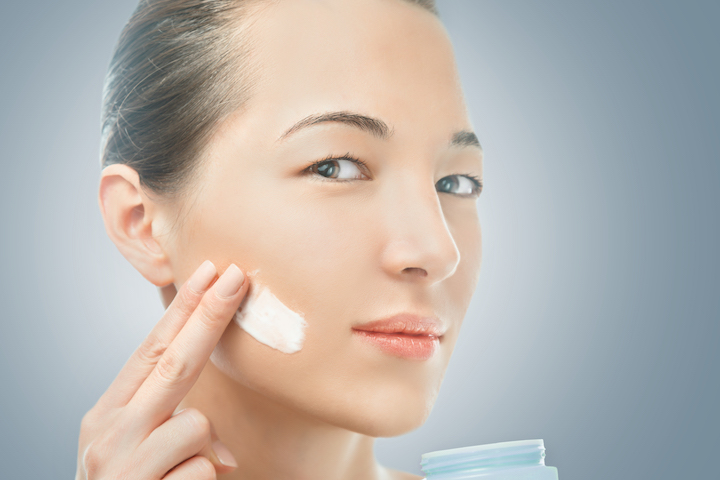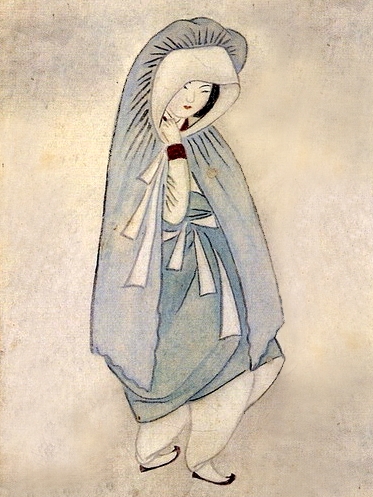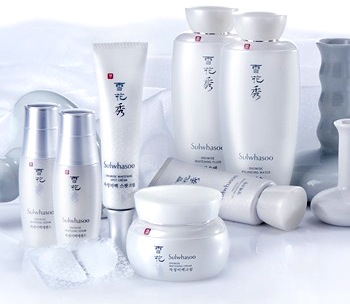Freaked out by all the K-beauty products with the word “whitening” in their names? You shouldn’t be (unless you cower in the face of lit-from-within glow). Here, contributing editor Sheryll breaks down what “whitening” products in K-beauty really mean and why she’s now a convert.
Before I moved to Korea to teach English, I went to Sephora, Target, and my favorite department stores to stock up on skincare, haircare, and makeup because I just knew that I wasn’t going to be able to find anything suitable for my skin and hair. I’d heard allllllll about Korean skincare products and how they whiten your skin and how they are definitely not suitable for black women. I’d been scared out of my mind so I literally packed an entire suitcase of products to bring with me. I didn’t want to run out and be caught up and have to use products that would *gasp* bleach me. I didn’t want to look like Sammy Sosa.
After much trepidation, I tried K-beauty products for the first time about a month after I moved. I went to the local Skinfood because I figured that was the place that was the most “organic” and “natural” (LOL I was such a newb). After some thought, I ended up getting products from one of the anti-acne lines, and the rest is history.

But even after becoming a full-blown K-beauty advocate, I avoided anything that said “whitening” or even mentioned the word “white.” I still believed that those products used ingredients that would turn my skin into an ashy, chalky mess. But do these whitening products actually “whiten”? What does whitening really mean? Let’s do a quick li’l history lesson.
Then: White = Fair-Skinned = Not Working in the Fields
In Korea and most of East Asia, fair skin is in. Why is this? Well, back in the day (like way back in the Joseon Era-day), fair skin was associated with wealth, high social status, and leisure. If you were fair, this meant you weren’t out working in the farms getting tan like the common poor people. Being “white” or fair-skinned in this context didn’t mean you were trying to become a different race; it was more about perceived social status. And let’s be real here — we all wanna look and feel rich, right?

Unfortunately, the term “whitening” in most contexts outside of South Korea means to legit lighten or bleach the skin. Some brands have even gotten into a bit of hot water using the word “white” in their products. Our beloved COSRX had to do a rebranding/renaming of their Whitehead Power Liquid after it was initially named “White Power Liquid.” It’s not too hard to see why that name would be a problem for a majority of Western consumers.
Today: Whitening = Brightening
The word “whitening” in K-beauty has been lost in translation because in South Korea, products that are labeled as “whitening” really mean that they brighten and even skin tone, giving you a that lit-from-within glow and lightening those pesky PIH spots. So really, whitening = brightening.
One of my biggest skincare concerns is dull skin. I’ve always coveted skin that looks like I sleep 48 hours a day and live on a diet of kale juice and carrots. After I realized that whitening doesn’t mean to actually bleach the skin, my K-beauty world opened up. Some of my favorite glow-giving products are the SanDaWha Camellia Oil Whitening Mist, pretty much anything from the Su:m37 White Award line, especially the Bubble Mask, and the Sulwhasoo Snowise EX line.
Some of the ingredients used to brighten the skin in these products are niacinamide (my bae), licorice root extract, truffle yeast, green tea, and vitamin C. Hanbang lines like The History of Whoo use ancient Korean herbs like chilhyangpalbaeksan (that’s a mouthfull) to inhibit melanin production (aka stop dark spots from forming) and brighten the skin. None of these ingredients will actually cause your skin to “whiten,” so go ahead and get your life!
What are your favorite “whitening” products? Let me know in the comments!
Loading...
